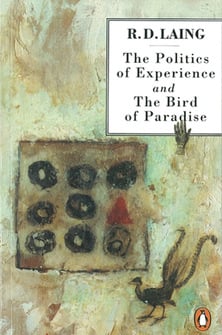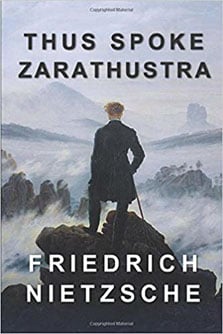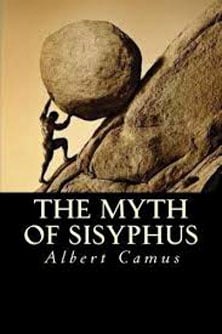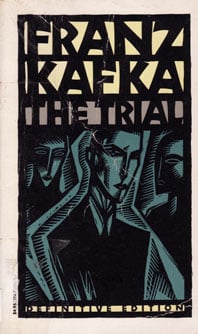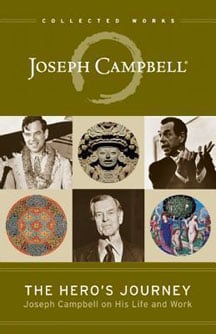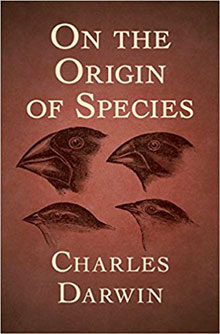About Linda MacCarthy
Born and bred in Dublin, Linda has had a life-long love of English literature and art. She has completed courses in community development and counselling skills, theology and women’s studies, and studied philosophy and sociology at the University College Dublin, where she focused on phenomenology, deconstructionism, hermeneutics, semiology and postmodernism. Earlier life experiences included working as a draughtsperson in a design studio, and joining the the Brendan Smith Academy of Acting and Theatre.
Linda has also run a successful company exhibiting and exporting her Irish crafts all over the world, including exhibiting in Bloomingdales of New York. This exhibition followed Linda's award of an Irish Development Business grant to represent Irish crafts abroad—out of 250 companies Linda’s was one of only nine chosen. For many years Linda also ran a craft and art gallery exhibiting Irish crafts, books and landscape paintings.
Linda, now a widow, was very happily married for 36 years, enjoying a close and full family life, with a love of literature, art and music shared over many generations.
Linda is extraordinarily well read across the fields of philosophy, myth and literature. She has a particular interest in the work of the great Scottish psychiatrist R.D. Laing, one of the most quoted authors in Jeremy’s work.
A selection of authors and books that have been of importance to Linda
R.D. Laing, Charles Dickens, Sir Walter Raleigh, Samuel Taylor Coleridge, William Wordsworth, Robert Burns, Charles Kingsley, Sean O’Casey, J.M. Synge, W.B. Yeats, Henrik Ibsen, Anton Chekov, Tennessee Williams, Eugene O’Neill, Shakespeare, the Greek Tragedians, Arthur Miller, August Strindberg, Thomas Mann, Friedrich Nietzsche (The Antichrist, Thus Spoke Zarathustra), Thomas Szasz (The Myth of Mental Illness), Daniel Tallis (The Uses of Extremity: An Inquiry Into Man's Malfunction and Discontent), Thomas Mann (The Magic Mountain, Buddenbrooks), Albert Camus (The Myth of Sisyphus), Alfred Alvarez (The Savage God), Jean Paul Sartre (Nausea, Existentialism Is a Humanism, What Is Literature?), Soren Kierkegaard (Sickness Unto Death), Franz Kafka (The Trial, The Metamorphosis), Johann Wolfgang von Goethe (Faust), Rachel Carson (Under the Sea-Wind), Greenpeace Chronicles, Lee Durrell (Gaia State of the Ark Atlas: World Conservation in Action), Joy Adamson, Dian Fossey, Jane Goodall, Laurens van der Post, George Eliot, Charlotte Bronte, Virginia Woolfe, Jane Austen, Elizabeth Gaskell, Emily Dickinson, Plato, Georg Wilhelm Friedrich Hegel, Martin Heidegger, Paul Ricœur, Maurice Merleau-Ponty, William Morris, John Ruskin, Joesph Campbell (The Masks of God, The Hero’s Journey), Charles Darwin (The Voyage of The Beagle, On The Origin of Species, The Life, Letters of Charles Darwin), Randall Keynes (Annie’s Box), Richard Dawkins, Sam Harris, Daniel Dennett, Christopher Hitchens, John Bunyan (The Pilgrim’s Progress), Dante Alighieri (Divine Comedy), T.S. Eliot, George Herbert, Patrick Kavanagh (The Greening of the Church, Passion for the Earth, To Care for the Earth), John O’Donohue (Eternal Echoes, Exploring Our Hunger To Belong, Divine Beauty: The Invisible Embrace), Fyodor Dostoyevsky (Crime and Punishment, The Idiot), Leo Tolstoy (Anna Karenina), Seamus Heaney (Station Island), Beowulf, Ted Hughes (Crow), Carl Jung, David Bohm (Wholeness and the Implicate Order), Fritjof Capra, Marilyn Ferguson, Rainer Maria Rilke and Herman Melville. Linda’s favourite artists are Louis le Brocquy, Vincent Van Gogh and Francis Bacon.
“After a lifetime of study it seems so clear to me that ALL paths lead to Jeremy Griffith’s work…This formidable task of finally explaining the human condition required the processing of immense amounts of knowledge to be synthesized into ONE WHOLE. This achievement is the singular miracle of Jeremy’s book FREEDOM: The End of the Human Condition…it is the catalyst for redemptive Transformation and salvation for our suffering species. It is Paradise restored. The future of humankind depends upon these hard-won truths.” Linda MacCarthy
Why Jeremy Griffith’s work is so important
I am in awe of Jeremy Griffiths monumental achievement, his Holy Grail of truth. Science, art, literature, religions and philosophies are now all reconciled, all explicable.
The human life searches for meaning and significance: a form of truth that can sustain us through our voyaging. We desperately NEED understanding. Without that basic foundation we are ships at sea. What Jeremy has done with his biological explanation of the human condition is chart the stormy seas of our discontent, to map a scientific course on which we may safely follow. This is the ultimate, definitive narrative of the Human Quest for Understanding.
Jeremy embraces so many dimensions within his comprehensive world view that it is a totality of comprehension that I have longed for. What a fantastic offering he is bestowing upon this earth, this new, true and beautifully holistic enlightenment within the complementary fields of science and art.
The journey to free ourselves from the human condition, to find the Holy Grail, is in all the myths, all the religions, all the philosophies, all art, and now Jeremy has cracked the code and deciphered the meaning. This significance is immense. I’ve also, almost always, had that sense of ‘Divine Discontent’ with our condition. I remember reading — in one night — out of desperation, John Bunyan’s Pilgrim’s Progress on all the trials and tribulations of the wandering, searching soul. Of course, like Dante’s Divine Comedy, it is a Christian quest to attain the truth of the celestial mountain. When I think of all these quests I’m reminded of The Lord of the Rings, The Chronicles of Narnia and so many other Christian allegories of the heart’s desire. The great literature, philosophies, religions and operas ALL express this longing. Think of Parsifal. Tristan and Isolde. Dante and Beatrice. Lancelot and Guinevere. Tannhauser. Abelard and Heloise. That Divine longing is now beautifully expressed and comprehended in Jeremy’s work.
We can now know that ALL these stories/fables/myths etc can be comprehended in the psychological struggles to comprehend reality. It seems so clear to me that ALL paths lead to Jeremy Griffith’s work. Jeremy has bestowed a most wonderful gift upon us all. It is the integrity and so profoundly human truth that he has revealed.
Young people crave understanding but because of the Deaf/Denial/Resigned state that Jeremy so tragically portrays, these young, tormented souls are left grappling alone in the dark. Consciousness is crying out for the answers to the human predicament. In the words of the great Irish poet, W.B. Yeats; ‘Things fall apart, the centre cannot hold’ (The Second Coming). ‘The centre cannot hold’ because we can’t find the centre. It shows how urgent it is that Jeremy Griffith’s work is implemented. The suffering that our ignorance has inflicted on this new young generation is appalling. We have produced conflicted, angst-ridden innocents because of our failure to UNDERSTAND the truth!
The last thing we need is pseudo idealism. No more ideologies, dogmas, or categorical imperatives.
The aridity of the empirical sciences is dismal, lacking any fertile ground for growth, a desert where, in the words of T.S. Eliot: ‘Here is no water but only rock, Rock and no water and the sandy road…If there were water, we would stop and drink’ (The Wasteland). The late, great psychiatrist, R.D. Laing stated his definition of science as: ‘…a form of knowledge adequate to its subject’ (The Politics of Experience). From reading and listening to essays based on Jeremy’s work, it is despairingly obvious that the empirical, reductionist, mechanistic sciences are completely inadequate in comprehending what is required.
Jeremy makes the essential point that for its part, Religious Faith is the ‘repository’ of the truth of humankind in its mission to understand what was inexplicable and incredibly magnificent and sublime in the cosmos. Man’s place in the universe was a mystery; but a magnificent obsession projected him onward and forward to make sense of this vastness.
And that is what has finally happened. We now have a comprehension that only an integration of heart, soul, spirit, mind and intellect, in the nourishing presence of science, can give us. Jeremy has unravelled the weave of the old threads and created a new tapestry of unimaginable beauty. The science and the spiritual explanations fit perfectly, like a jigsaw.
This formidable task of finally explaining the human condition required the processing of immense amounts of knowledge to be synthesized into ONE WHOLE. This achievement is the singular miracle of Jeremy’s book FREEDOM: The End of the Human Condition.
Jeremy’s work, Thank God, supplies the Answers we so DESPERATELY need, so urgently require, to bring ALL this good news about our basic, fundamentally GOOD nature and relieve the suffering of humanity. Jeremy’s work is the catalyst for redemptive Transformation and salvation for our suffering species. It is Paradise restored.
The future of humankind depends upon these hard-won truths and the beautiful integrity with which Jeremy Griffith expresses it all.



